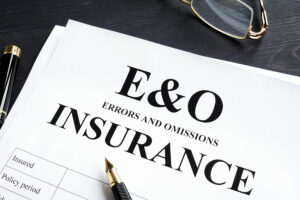Many small businesses require general liability coverage in order to guard against claims related to bodily injury, property damage and reputational harm. Professional liability policies provide additional coverage against errors or omissions related to services provided or advice given.
Both types of policies help mitigate the consequences of lawsuits, yet each offer unique protections. Read on to understand their differences:
Cost
Both coverage solutions provide vital financial protection for businesses, but each addresses different risk categories. General liability protects against tangible risks related to business operations or incidents that cause bodily injury and property damage for third parties, while professional liability (also referred to as errors and omissions insurance) safeguards against claims related to professional services rendered such as an error, negligence or failure on your part which lead to losses for clients.
Understanding these differences allows for smart insurance decisions tailored to your company’s unique operations.
An effective general liability policy requires taking several factors into consideration, including industry risk factors, number of locations, employee count, years in business, claims history and legal expenses incurred, product dangers, consumer access and strong safety protocols. Professional liability insurance premium inputs often consider complex and varied variables, including specialty complexity, practitioner credentials such as certifications and education levels, firm revenues tied to your services, project types, and any inherent risks. Professional liability policies often feature “shrinking limits”, in which your insurer’s payments for defense costs reduce the available limits of insurance claim-by-claim – this feature is especially pertinent to high-dollar claims. Assume, for example, that one of your painters erroneously paints one of your clients’ homes the wrong color and they then sue for lost revenue, time and labor to correct it – the legal fees and court awards could exceed your professional liability policy’s coverage limit.
Coverage
General liability insurance provides businesses with protection against the physical risks of property damage and bodily injury claims, legal expenses associated with libel or slander lawsuits and similar legal expenses. Professional liability (errors and omissions insurance) provides additional layers of defense against more nuanced risks like claims for misguided advice or substandard services which lead to financial losses for their customers.
Errors and omissions policies, which are frequently required of clients as contractors and construction professionals are, differ from general liability coverage by focusing more on financial damages than physical ones. They’re usually offered on a claims-made basis so only incidents after purchase will be covered rather than events from previous times.
Both forms of insurance provide protection from events that cannot be prevented, so it’s essential for businesses to understand what each offers. Although their core risk factors remain similar, premium inputs vary significantly based on industry, location(s), employee count(s), claims history history history as well as product dangers among others.
Insurance Canopy’s team of insurance experts can assist in selecting the best solutions to protect your operations and assets. Contact us to gain more insight into obtaining general or professional liability protection today!
Exclusions
Both types of insurance provide businesses with protection from costly liabilities; however, each differs in how it addresses particular incidents. General liability policies offer coverage for property damage and bodily injuries caused by business operations while professional liability coverage protects professionals against errors or omissions claims that may cause financial loss for clients.
Differences also exist among types of insurance policies when it comes to exclusions they provide; for instance, certain general liability policies exclude claims related to acts of intentional deceit or dishonesty while professional liability policies generally preclude claims related to criminal activity.
Professional liability policies often contain geographic limitations to limit coverage. For example, a family counselor could work virtually with clients across the United States but her professional liability policy only extends coverage within Georgia state borders. If she gives poor advice that leads to divorce proceedings for one of those clients she could be sued for malpractice; however, should insurers deny this claim due to being outside its geographic reach.
Both general and professional liability policies offer coverage against legal fees associated with claims that might arise from your business activities, but it is crucial to understand their differences so you can select a solution tailored specifically to meet your unique business needs.
Reporting
As your company navigates an ever-more-complex global business environment, it is vital that you equip it with an in-depth knowledge of its various insurance solutions available to it. Liability insurance coverage is a must for businesses of any size – yet different policies differ significantly in terms of general vs professional liability, making determining which one best meets your organization a challenge.
General liability covers risks related to physical damage caused by the business and its operations, such as bodily injuries caused to customers, vendors and third parties who come in contact with its products and premises, as well as property damage caused by work done at locations other than its office. Professional liability on the other hand covers financial losses from mistakes made when providing services; for instance an accountant’s typo that results in their client losing money or an architect’s design flaw delaying projects would fall under this category of insurance policy coverage.
Professional liability policies tend to cover damages sustained during the policy period regardless of when an error or omission took place, unlike most general liability policies that only cover incidents during active insurance periods. When considering your options for business liability coverage in New Jersey, it is essential that these distinctions be taken into account.




